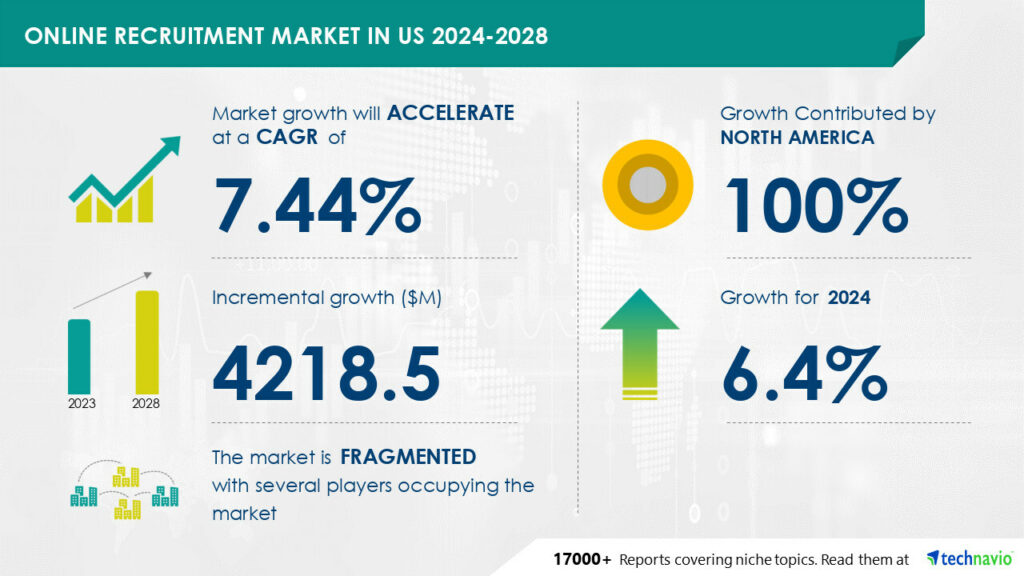The US online recruitment market is poised for significant growth, with Technavio predicting a jump of USD 4.21 billion between 2024 and 2028. This translates to a healthy Compound Annual Growth Rate (CAGR) of 7.44%.

Driving this expansion are innovations in the hiring process, particularly the rise of AI-powered searches for better candidate matching. However, the market faces a challenge in the form of declining profitability due to intense competition among players. Major participants in this space include established names like Adecco, Randstad, and Recruit Holdings, alongside innovative tech companies like Microsoft.
Key Market Trends Fueling Growth
Online recruitment in the US is undergoing a transformation through the adoption of artificial intelligence (AI) technology. Recruiters can now use AI-powered search engines to find candidates matching specific job designations. These engines send automated notifications to potential applicants and chatbots facilitate the initial contact.
Chatbots categorize candidates based on qualifications and job requirements, while AI analyzes facial expressions and cognitive intelligence through tools like HireVue. This technology helps recruiters determine cultural fit, automate workflows, and make impartial, cost-effective hiring decisions. The use of AI in recruitment is expected to increase, with companies like The Carlyle Group partnering with HireVue to innovate. AI enhances recruiters’ roles by making them more proactive, improving hiring decisions with data, and streamlining the hiring process. This trend will fuel the growth of the online recruitment market in the US.
The online recruitment market in the US is thriving, with e-recruitment, digital recruitment, and web-based resources becoming the norm. Job boards, social media sites, and specialized recruitment software are popular tools for posting vacancies and connecting with candidates. Hiring processes are increasingly digital, utilizing AI and machine learning for automated candidate screening and data-driven recruitment decisions. IT segment jobs, including soft and hard skills, dominate online job postings.
Candidates use job search engines and recruitment websites for advanced search options and resume builders. AI-powered recruitment tools streamline the recruitment process, providing candidate-job matches and career guidance. Remote hiring, diversity hiring, and full-time or part-time positions are common. Security issues and chatbots are part of the recruitment procedures. Big data analytics provide valuable insights for talent acquisition across industries, from finance and sales to engineering, IT, hotel and catering, and more.
